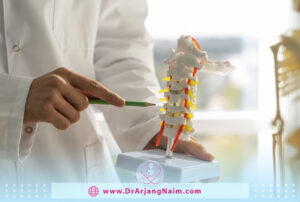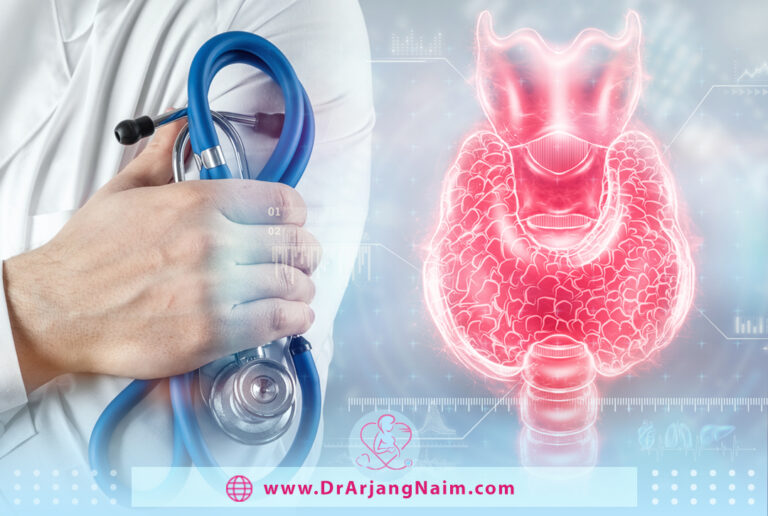Thyroid issues are more common in women and can affect various aspects of their health. The thyroid is a small, butterfly-shaped gland located in the neck. It regulates metabolism, energy production, and various bodily functions. Thyroid issues, more prevalent in women, can lead to problems like hypothyroidism (insufficient hormone production) or hyperthyroidism (excessive hormone production), affecting weight, energy levels, and overall health. Autoimmune disorders, nodules, postpartum changes, and cancer impact thyroid health. Diagnosis involves blood tests; treatment may include medication, lifestyle adjustments, or surgery. Regular medical check-ups are important to monitor thyroid function and address any concerns.

What is the thyroid?
The thyroid is a small, butterfly-shaped gland located at the base of the neck, just below the Adam’s apple. It is an essential part of the endocrine system, which produces and regulates hormones that control various bodily functions. The thyroid gland primarily produces two hormones, thyroxine (T4) and triiodothyronine (T3), crucial in regulating metabolism, energy production, body temperature, heart rate, and other vital processes.
The thyroid’s activity is controlled by another hormone called thyroid-stimulating hormone (TSH), produced by the brain’s pituitary gland. Proper thyroid functioning is essential for maintaining overall health and well-being. Thyroid issues, such as hypo- or hyperthyroidism, can lead to various health problems and should be monitored and treated by healthcare professionals.
What does the thyroid do?
The thyroid gland plays a crucial role in regulating various bodily functions by producing and releasing thyroid hormones. These hormones, primarily thyroxine (T4) and triiodothyronine (T3) have a widespread impact on metabolism, energy production, and the functioning of cells throughout the body.
Metabolism regulation
Thyroid hormones control the body’s metabolic rate, which affects how quickly the body uses energy from food. They influence processes like digestion, nutrient absorption, and energy expenditure.
Body temperature
Thyroid hormones help regulate body temperature by influencing how efficiently the body generates and dissipates heat.
Heart rate and blood pressure
Thyroid hormones influence the heart rate and help maintain proper blood pressure by affecting the sensitivity of blood vessels to other hormones.
Brain development and function
Thyroid hormones are critical for brain development in infants and young children. They also support cognitive function, mood regulation, and overall mental well-being in adults.
Muscle function
Thyroid hormones affect muscle strength and coordination, playing a role in muscle development and maintenance.

Bone health
Adequate thyroid hormone levels are necessary for maintaining bone health and preventing bone loss.
Gastrointestinal function
Thyroid hormones influence digestive processes, including the breakdown of food and the absorption of nutrients.
Reproductive health
Thyroid hormones regulate the menstrual cycle in women and play a role in fertility. They also contribute to the overall function of the reproductive system.
Cholesterol levels
Thyroid hormones help regulate cholesterol levels in the blood.
The thyroid gland’s activity is controlled by the feedback system involving the hypothalamus and the pituitary gland. The hypothalamus releases thyrotropin-releasing hormone (TRH), which signals the pituitary gland to release thyroid-stimulating hormone (TSH). TSH then stimulates the thyroid gland to produce and release T3 and T4. When the body’s thyroid hormone levels are sufficient, this feedback loop helps maintain balance.
Thyroid dysfunction, whether hypo- (too little) or hyperthyroidism (too much), can disrupt these important functions and lead to various health issues. Monitoring thyroid health and addressing any imbalances is essential for overall well-being.
How does your body feel when you have a thyroid problem?
How you feel depends on the type of thyroid problem you have. Here are some symptoms associated with common thyroid disorders.
Hypothyroidism
Hypothyroidism is a condition in which thyroid hormone production is less than normal. One of the common causes of hypothyroidism is Hashimoto’s disease. It is an autoimmune disorder in which the immune system attacks healthy cells. According to the National Institute of Diabetes and Digestive and Kidney Diseases (NIDDKD), this autoimmune disease runs in families and affects women up to 10 times more often than men. Therefore, family history and gender are risk factors for Hashimoto’s disease and hypothyroidism.
Symptoms of severe hypothyroidism in men and women include weight gain despite a healthy diet and exercise, hair loss, dry skin, feeling cold, constipation, fatigue, muscle pain, joint pain, high blood pressure, mood changes, memory problems, and Enlargement of the thyroid gland.
Hyperthyroidism
Too much thyroid hormone can lead to hyperthyroidism or an overactive thyroid gland. One of the common causes of hyperthyroidism is Graves’ disease. It is an autoimmune disorder up to 8 times more common in women than men.
Signs and symptoms of hyperthyroidism in men and women include weight loss, increased appetite, feeling hot, palpitations, rapid heartbeat, irregular heartbeat, excessive sweating, tremors, nervousness, anxiety, fatigue, and disorders. Sleep, muscle weakness, and enlarged thyroid gland.
Thyroid nodules and goiter
When the thyroid is chronically inflamed, such as Hashimoto’s disease, it can form thyroid nodules. Multinodular goiter is an enlargement of the thyroid gland due to iodine deficiency. Women are up to 4 times more prone to these thyroid disorders than men.
Common signs and symptoms of large goiters or thyroid nodules include swelling in the neck and difficulty breathing or swallowing. Other symptoms can include hyperthyroidism (if the nodules produce excess thyroid hormones) or hypothyroidism (if the thyroid gland is inflamed).
Thyroid cancer
Thyroid cancer occurs when there is uncontrolled growth of thyroid cells. This disease is almost three times more common in women than in men.
Signs and symptoms of thyroid cancer include a lump in the neck, discomfort with stiff necks, voice changes, difficulty swallowing, sore throat, and enlarged lymph nodes in the neck.

What happens when a woman has a thyroid problem?
As mentioned, women are significantly more at risk of developing thyroid disease than men. One out of eight women will suffer from thyroid problems at some point. Some of the signs and symptoms of thyroid diseases that are specific to women are:
- Irregular menstrual periods: The thyroid gland helps regulate the menstrual cycle. Too much or too little thyroid hormone can cause light, heavy, or irregular periods. Thyroid disease can also lead to amenorrhea (absence of menstruation) for several months. If thyroid disease is due to immune system problems, it can affect the ovaries and cause early menopause in women under 40.
- Fertility issues: Thyroid problems in women can make it harder to get pregnant. This is because the hormones produced by the thyroid affect the menstrual cycle and ovulation.
- Health problems during pregnancy: Untreated thyroid disease can lead to problems during pregnancy, such as miscarriage, premature birth, and stillbirth.
- Postpartum thyroiditis: This is inflammation of the thyroid that occurs after childbirth. It is an autoimmune disorder and leads to hyperthyroidism. However, treating hyperthyroidism can eventually lead to permanent hypothyroidism.
Remember that many signs and symptoms of thyroid disease in women are non-specific. For example, various conditions can cause weight loss or weight gain. Also, thyroid symptoms can be confused with menopause symptoms. Proper diagnosis and treatment of thyroid disease can significantly improve your symptoms.

How is thyroid disorder diagnosed?
If you suspect that your thyroid gland is not working properly or if you have early warning signs of a thyroid problem, talk to your healthcare provider. Depending on your symptoms, medical history, and exam, they may order blood tests and imaging studies to find out what’s going on. Tests to diagnose a thyroid disorder can include the following:
- Blood test to check thyroid hormone levels.
- Thyroid scan or radioactive iodine uptake test (RAI-U).
- An imaging test such as MRI, CT scan an ultrasound
How are thyroid conditions treated?
Most thyroid diseases can be easily treated with medication and monitoring hormone levels in the blood. The thyroid can be surgically removed in more serious conditions, such as an enlarged thyroid gland or thyroid cancer. A person having a thyroidectomy may take medications to replace the thyroid hormones in the body.
Are there different types of thyroidectomy surgery?
If your doctor determines that your thyroid needs to be removed, a few things can be done. Your thyroid may need to be completely or partially removed. It depends on the severity of your condition. Also, if your thyroid is very large or has a large growth, this can prevent you from being eligible for some types of surgery.
Surgery to remove the thyroid is called a thyroidectomy. There are two main ways to perform this surgery:
- With a slit in the front of the neck
- With a cut in the armpit
An incision in the front of the neck is the most traditional type of thyroidectomy. This allows the surgeon to go directly into the body and remove the thyroid. In many cases, this may be your best option. You may need this procedure if your thyroid has large or larger nodules.
Alternatively, there is a version of thyroidectomy surgery in which the surgeon makes an incision in the armpit and then tunnels into the thyroid. It creates an opening that connects the axillary incision to the neck. The surgeon uses a robotic arm that moves through the tunnel to reach the thyroid. After that, he can remove the thyroid through the tunnel and the axillary incision.
This procedure is often scarless because the incision is under the armpit and out of sight. However, it is more complicated for the surgeon, and the tunnel is more invasive for you.
The bottom line
In conclusion, recognizing thyroid issues in women involves a combination of awareness, monitoring, and seeking medical guidance.
Early detection and prompt medical intervention are crucial in managing thyroid issues and maintaining optimal health. If you suspect you have thyroid-related symptoms, do not hesitate to contact a qualified healthcare professional for guidance and support.
Additional questions
- Are some women more at risk for thyroid disease?
Certain groups of women are more at risk for thyroid disease than others. Thyroid diseases are more common in women than men, and various factors can increase the risk for thyroid issues among women. Some of these factors include:
- Age
- Family History
- Autoimmune Conditions
- Pregnancy and Postpartum Period
- Iodine Deficiency or Excess
- Radiation Exposure
- Certain Medications
- Smoking
- Stress and Hormonal Changes
- Geographical Location
- What is postpartum thyroiditis?
Postpartum thyroiditis is a condition that affects some women after childbirth. It involves two phases, an initial hyperthyroid phase with symptoms like anxiety and rapid heart rate, followed by a hypothyroid phase marked by fatigue and weight gain.
- How does thyroid disease affect pregnancy?
Thyroid disease can significantly affect pregnancy by impacting fertility, increasing the risk of miscarriage and preterm birth, and influencing fetal development. Proper thyroid function is crucial for the baby’s brain and nervous system development, especially in the early stages of pregnancy. Untreated thyroid disorders may lead to gestational diabetes, high blood pressure, and poor fetal growth.
- How are thyroid nodules treated?
Thyroid nodules can be treated based on size, symptoms, and characteristics. Small, non-cancerous nodules may be monitored. Thyroid hormone suppression can help shrink some nodules, while radioactive iodine treatment can address hyperactive or larger nodules. Surgery may be considered for suspicious or problematic nodules. Minimally invasive procedures like radiofrequency or ethanol ablation can also be used. Treatment choices depend on nodule type, size, and patient health and should be discussed with a healthcare provider.
- Can thyroid issues cause seizures?
While seizures are not a common symptom of thyroid disorders, severe thyroid hormone imbalance, particularly in untreated or severe hypothyroidism or hyperthyroidism, can potentially lead to seizures.
References
https://share.upmc.com/2023/01/thyroid-issues-in-women/
https://www.hopkinsmedicine.org/health/conditions-and-diseases/thyroid-disorders-in-women
https://my.clevelandclinic.org/health/diseases/8541-thyroid-disease
https://www.buzzrx.com/blog/what-are-the-signs-of-thyroid-problems-in-women
https://www.everydayhealth.com/womens-health/what-women-need-to-know-about-thyroid-disorders.aspx




